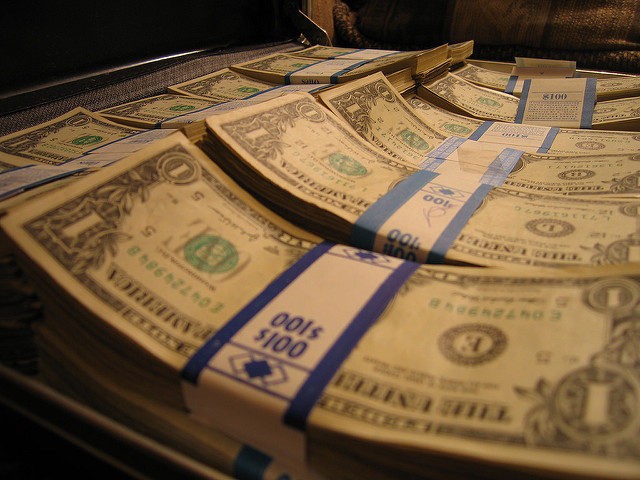California marijuana retailers will be toting huge amounts of cash to the Franchise Tax Board and the IRS, as pot still is too illegal for banks to inhale.
The California Cannabis Working Group, organized by State Treasurer John Chiang, published “Banking Access Strategies for Cannabis-Related Businesses” in November to prepare for the implementation of the “California Control, Regulate and Tax Adult Use of Marijuana Initiative” (Proposition 64), which launched legal recreational marijuana sales on January 1.
But despite expectations of big sales and a flood of new taxes, the Group warned that no regulated bank would be willing to provide checking services for legal marijuana dealers to pay employees and taxes.
With legal and medical cannabis still categorized under the U.S. Controlled Substances Act as a Schedule 1 substance, California’s licensed marijuana businesses on Jan. 15 made their first payments under the federal tax code’s USC 280E, as is required for illegal drug traffickers and international criminal cartels.
Despite tax rates that are about 70 percent higher than fully legal businesses, substantial numbers of licensed marijuana businesses were showing up at IRS locations with large bundles of cash to make their first monthly social security, Medicare, and employee tax withholding payments.
The IRS responded by jacking up cash-counting capacity, hiring new staff in Denver, Seattle, and Los Angeles. Both federal and state officials expect that April 15, as the first corporate quarterly tax installment due date for 2018, will see huge cash payments.
There are no published statistics on payments yet, but even with the State of California’s Bureau of Cannabis Control (BCC) off to a slow start issuing licenses, more than 1,600 cannabis operators from Shasta Lake to the City of San Diego now legally hold licenses to grow, distribute, or retail marijuana by Jan 29. Another 2,174 supposedly medical marijuana dispensaries are also now open.
The BCC has projected that a legal cannabis industry will grow at about the same 28 percent compounded rate as the roll-out of Internet broadband access in the 1990s. The BCC expects California pot revenue of $7 billion and private sector employment of 100,000, spiking to $20.2 billion and 150,000 by 2021.
The BCC also predicts that state and local marijuana tax revenue will skyrocketing from $1 billion to $3 billion over the same period. Other states and the federal government are literally drooling over a study by analytics firm New Frontier Data, which estimated that legal marijuana at the 50-state federal level would generate federal income tax, sale taxes, and payroll deductions equal to $132 billion.
But all of this activity without access to checks and bank accounts continues to generate cash that is becoming a prime target of armed criminals. About 30 armed robberies of marijuana shops have taken place in San Diego County. There have also been high-profile murders and muggings in West Los Angeles, and a number of heists in Northern California.
The number of violent crimes against legal cannabis operators is believed to be much higher, but many marijuana entrepreneurs seem willing to accept being ripped off from time to time, so long as they can maintain a low profile and ride the legal marijuana boom.

COMMENTS
Please let us know if you're having issues with commenting.